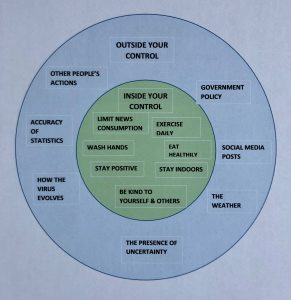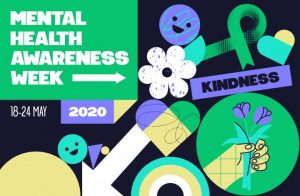Premature Ovarian Insufficiency (POI) can come as an unexpected and unpleasant shock, whatever age it occurs. It is the theme of this year’s World Menopause Day 2020 organised by the International Menopause Society to raise awareness of menopause issues.
POI and menopause before age 40 can give rise to feelings of loss and grief connected to loss of options to have children. As one woman, L, told me:
“My official diagnosis of menopause came on my 36th birthday. I’d had one child. To me, this was like ‘game over’. I don’t have the option to have children any more. I felt like I’d been hit by a train. That was the hardest thing to come to terms with.”
The Information
The average age of menopause is 52 in the UK but POI can happen at any age after menstruation starts up to age 40, plunging the woman into menopause. It has been estimated that the condition affects approximately 1% of the population but that incidence may vary between countries. There are various causes which include:
- Genetic and chromosomal disorders
- Autoimmune disorders
- Chemotherapy and radiation therapy
- Viral infections
Doctors are not sure why this happens and may be slow or reluctant to diagnose it. The symptoms are the same as menopause such as hot flushes, night sweats, brain fog, sleep problems, changes to menstrual periods and anxiety.
L said:
“I’d had my child at 34 and eighteen months later I was having hot flushes, constant headaches, lethargic, really tired all the time. Also, my periods were all over the place. I joked with my husband that I was going through the menopause and I was going to see the GP. She laughed at me when I said it too. She thought it might be thyroid. But she did all the tests and when I went in for the follow-up she said ‘Actually your hormones are indicating menopause’.”
Taking Action
If you are diagnosed with POI you are likely to be offered hormone therapy (HT or HRT) to aid the symptoms and specifically to support bone health. You may also be advised to take calcium and vitamin D supplements to prevent bone density loss. Changes to nutrition, exercise and lifestyle are also recommended to reduce symptoms and enhance physical and mental wellbeing.
“I worked with a trainer who uses kettlebells which is a form of weight resistant exercise. She said this would be excellent for my bone density. I was having a bone density scan every year but four years ago they told me my bone density was growing so I don’t have to go every year now. I do my exercise outside because I do get hot.
She also suggested changes to my diet. I had put on an awful lot of weight. As In the end I lost about two stone. I am happy now and fit and healthy and strong.”
Top Tips
If you are under age 40 and you are experiencing symptoms such as hot flushes, poor sleep, irregular periods or lethargy, don’t ignore it:
- Visit your doctor and explain what you are experiencing
- Ask for hormone tests if they are not suggested
- Discuss your options for treatment.
- Talk to your doctor about possible side effects and risks
- Consider changes to your nutrition, exercise and lifestyle
- If you were hoping to get pregnant you may want to talk to a fertility specialist or counselor to understand your options.
If you want more information or to talk about what you are experiencing contact me today.
For more information about Premature Ovarian Insufficiency, the IMS have released a White Paper: Premature ovarian insufficiency: an International Menopause Society White Paper





